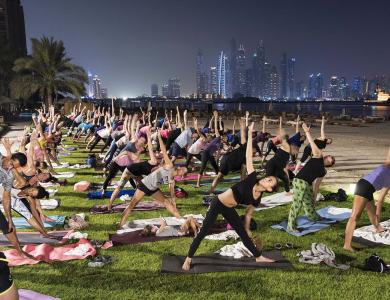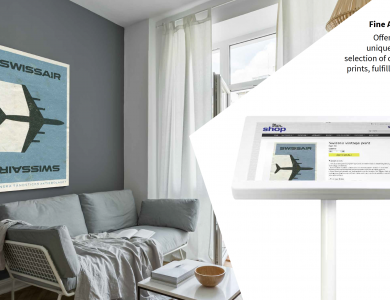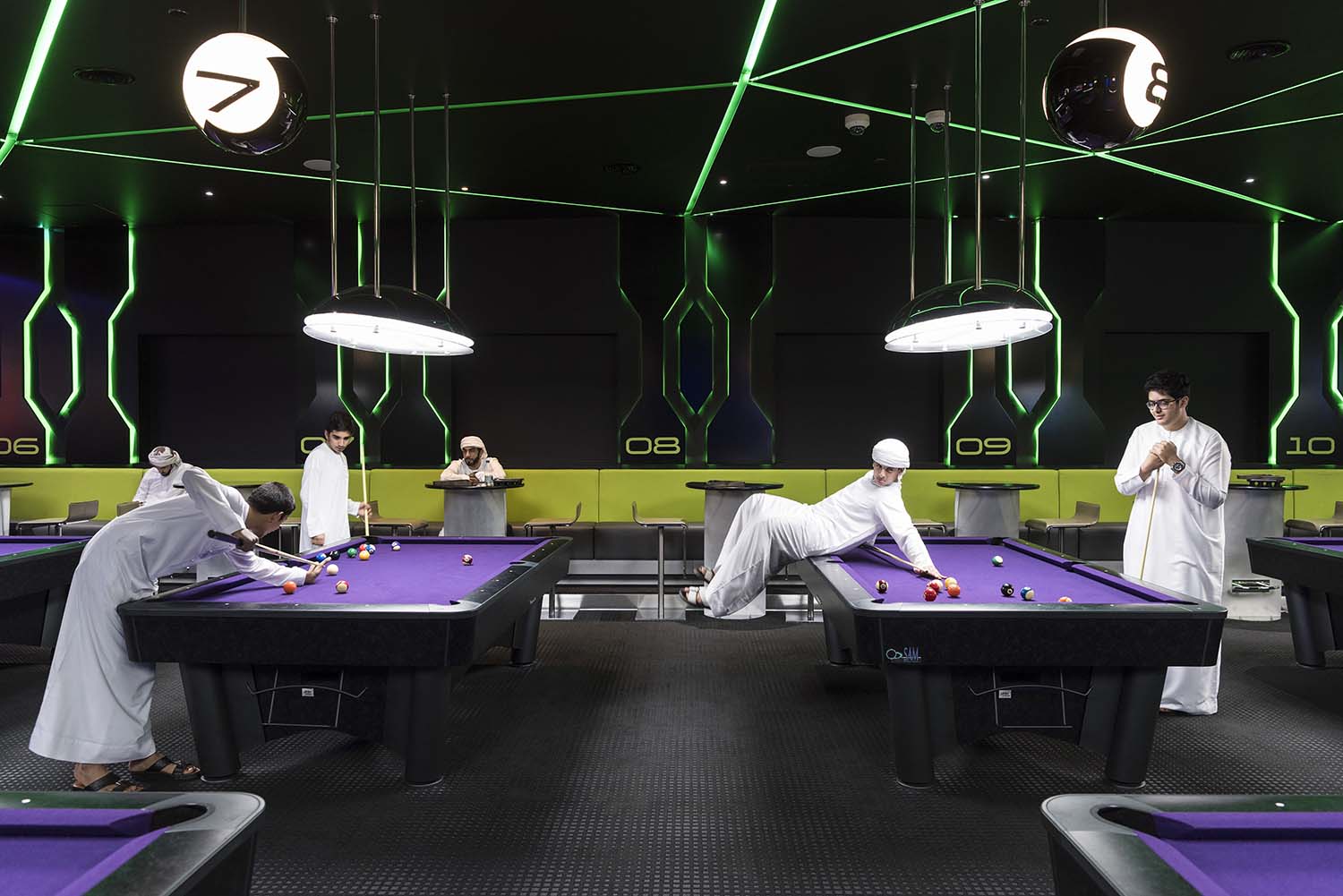
Nick Hannes is the overall winner of the 2018 ZEISS Photography Award. His series, 'Garden of Delight', was chosen from nearly 90,000 entries by photographers from more than 140 countries. Now in its third year, the 2018 ZEISS Award asked photographers worldwide to enter a series of work under the theme "Seeing Beyond – Meaningful Places".
Nick is a Belgian photographer who was born in Antwerp in 1974 and is now based in Ranst, Belgium. In 2006, he quit his job as a press assignments photographer, in order to concentrate full-time on his own documentary projects. He says of that time: "I left for a one year round trip by bus and train through the former Soviet Union, carrying just a backpack and a camera."
His winning series, alongside all the shortlisted 2018 ZEISS Award photographers, will be shown at the 2018 Exhibition in London from 20th April - 6th May.
Hi Nick. Many congratulations on winning the ZEISS Award this year! Firstly, please introduce yourself and tell us a little about you and your photography
I graduated from the Royal Academy of Fine Arts (KASK) in Ghent in 1997. After 8 years of doing assignments as a photojournalist, I decided to concentrate on self-initiated documentary projects. My work has a strong political and social component, and often deals with the problematic relationship we have with our environment.
I've published 2 books: 'Red Journey' deals with the transitional phase in post-communist society. 'Mediterranean. The Continuity of Man' focuses on various contemporary issues such as mass-tourism, urbanization, migration, and crises of various kinds in the Mediterranean region. Since 2008, I have taught documentary photography at KASK.
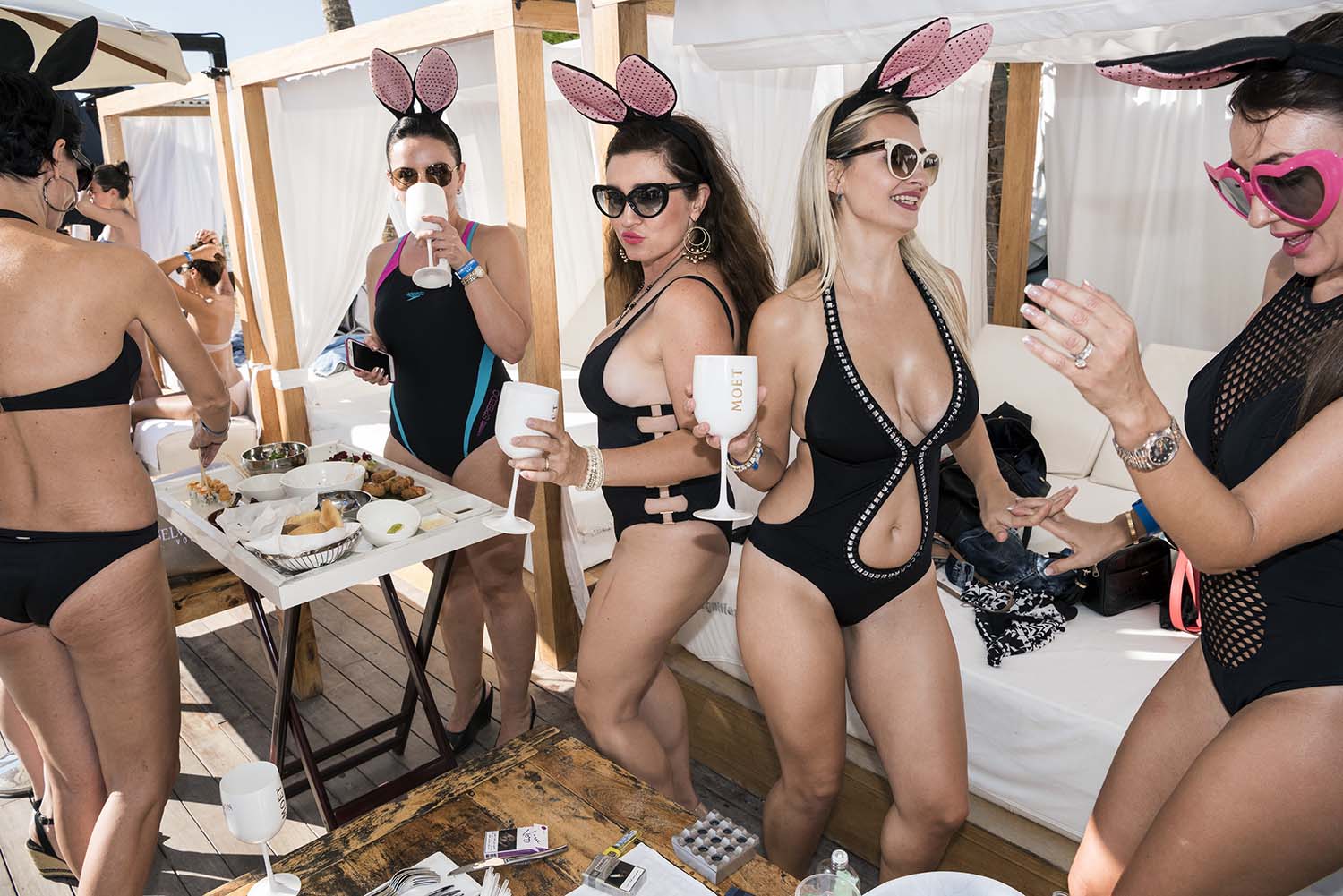
Tell us more about 'Garden of Delight' - The images seem to pop with colour and vibrancy, whilst retaining a real documentary edge
I traveled to Dubai five times in the last two years. I consider 'Garden of Delight' as a case study on high-speed urbanization – a topic that fascinates me a lot. Dubai is a peculiar case since its urbanization has nothing to do with organic urban growth, but with branding and generating profit.
Within this spectacular Dubai-decor, I predominantly focused on the entertainment industry, one of the main economic pillars of the Emirate. I photographed malls, theme parks, beaches, nightclubs, hotels and other places of leisure. In a way, Dubai is one big meta-theme park. People want to be entertained more and more, and in more spectacular ways. A simple beach or a book in the park is not enough. They want fireworks and light shows and dancing fountains. They want to skydive, ski in the desert, swim with dolphins and watch fire-eaters and belly dancers while having dinner. I often wondered: Have our lives really become so boring that we need all this? Are we maybe losing our imagination? Or is there more going on? Entertainment distracts us from the real problems in the world. It makes us consume more. 'Garden of Delight' is also a more universal story about our relationship to pleasure and entertainment.
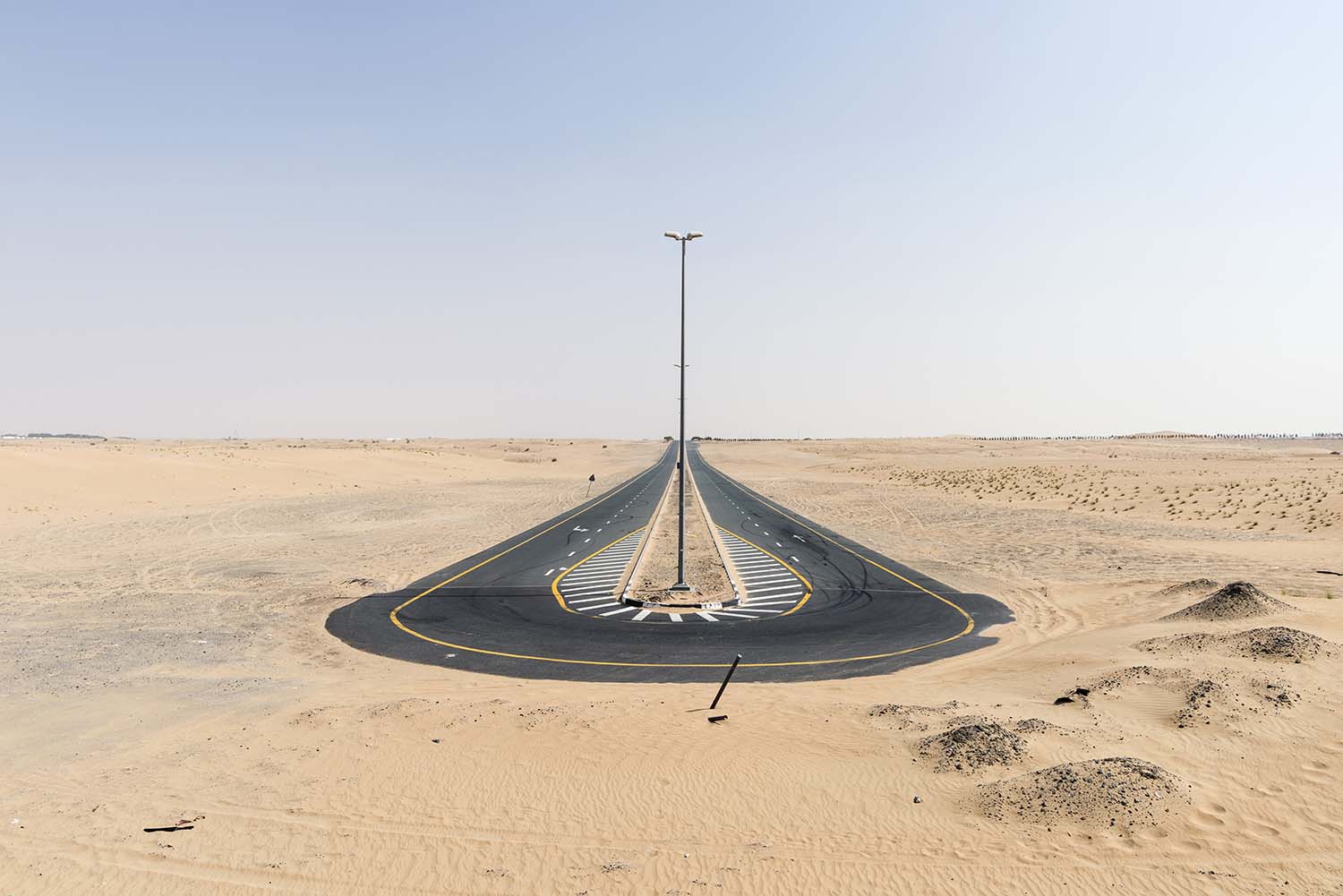
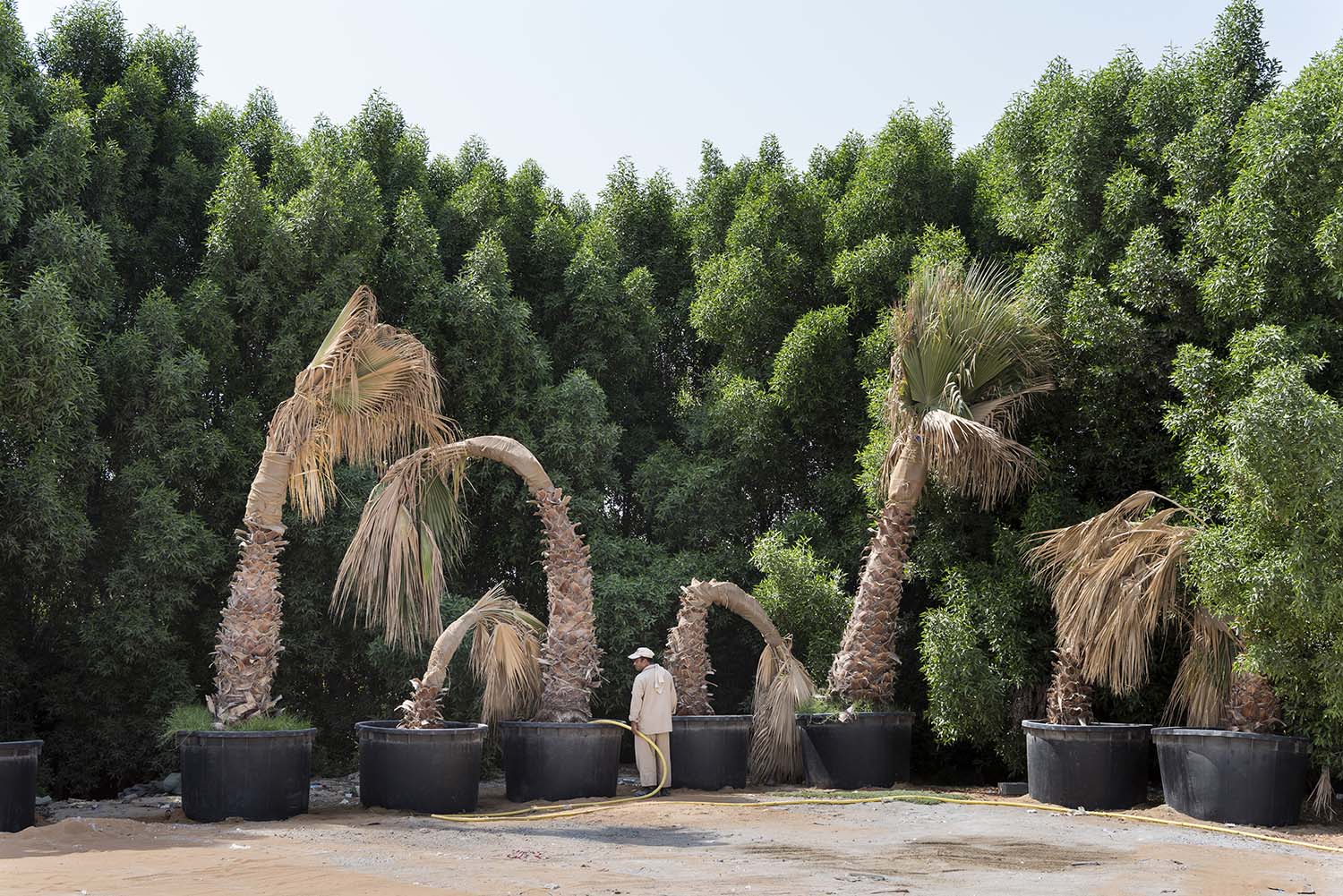
Why photography? Do you remember your first interaction with the medium?
I inherited my father's SLR camera when I was 14. I was going to be a biologist. I learned from the birds and the bats. I won an amateur photo contest with a picture of a snail on a purple flower. The first prize was a travel voucher that brought me to the Galapagos Islands, in the footsteps of my hero, Charles Darwin. There I witnessed mating Blue Footed Boobies. The next year I went to the Art Academy to study photography. Then it became serious.
I am a curious person. The camera forces me to go out into the world, to places where I wouldn't end up if I weren't a photographer. It's the key to opening doors that would stay closed otherwise.
Later on, I started to appreciate the poetic magic of the medium. How it freezes a moment from the real world and how it is able to create additional meanings. I'm a big fan of coincidences, I try to foresee them. It's very satisfactory if I succeed in capturing an interesting moment out of the chaos of everyday life. What happens in real life is often much more surprising than anything I could ever think of. That's why I don’t stage my photographs. It would kill the magic of the moment.
Not staged, but certainly theatrical…. that’s how I like it. Photography subtly plays with the border between illusion and reality. Is it real? Is it fake? Life in Dubai is a bit the same. Real and fake.
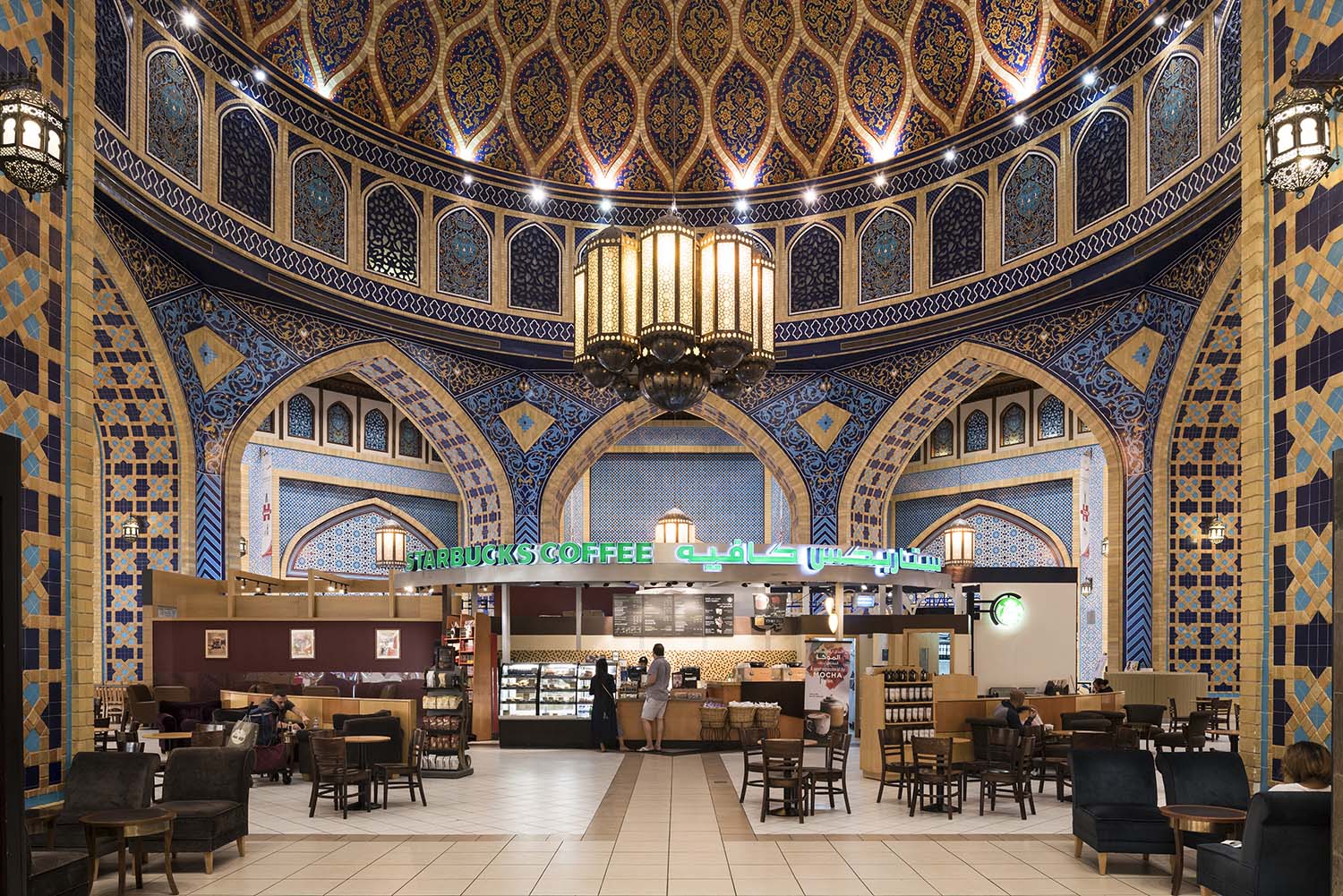
The ZEISS Award has become a hugely popular competition in a few short years, and the winners and shortlist have gone on to do some amazing work. How did it feel to win and what do you hope to get from your success?
I am very honoured and grateful to receive this award. 'Garden of Delight' is a self-initiated and self-funded project, that involved several nerve-wracking trips to Dubai. I am glad I persevered. This recognition proves that it was worth it to keep going and dig deep into my subject.
I'm sure this award will bring more visibility to my work. I hope it will also help to find a good publisher for my book and international exhibition opportunities for 2019 and onwards.
You talk about the project including some "nerve-wracking trips" to Dubai - tell us more about the logistics and shooting of 'Garden of Delight'
In this case, research was absolutely key. Dubai is not the kind of place where you improvise as a photographer. It's a very controlled society. You cannot simply walk into a hotel or a mall and start taking pictures. You need to prepare your program carefully and collect all necessary permits. After listing up all interesting places, I spent months contacting the right people, PR-managers etc, and following up the communication, in order to set a date for a shoot. This was unexpectedly very hard and time-consuming.
Dubai is a Big Brother society. They don't like coincidences, adventures or unpredictability. CCTV cameras and security personal are always present. And they know very well the difference between a tourist and a photographer. Even with the right permit, it is sometimes hard to work. Often a PR person accompanied me during the shooting. They are not so familiar with the concept of documentary photography. In a society where everything is PR, marketing, corporate and economy, it's hard to explain the value of documentary photography.
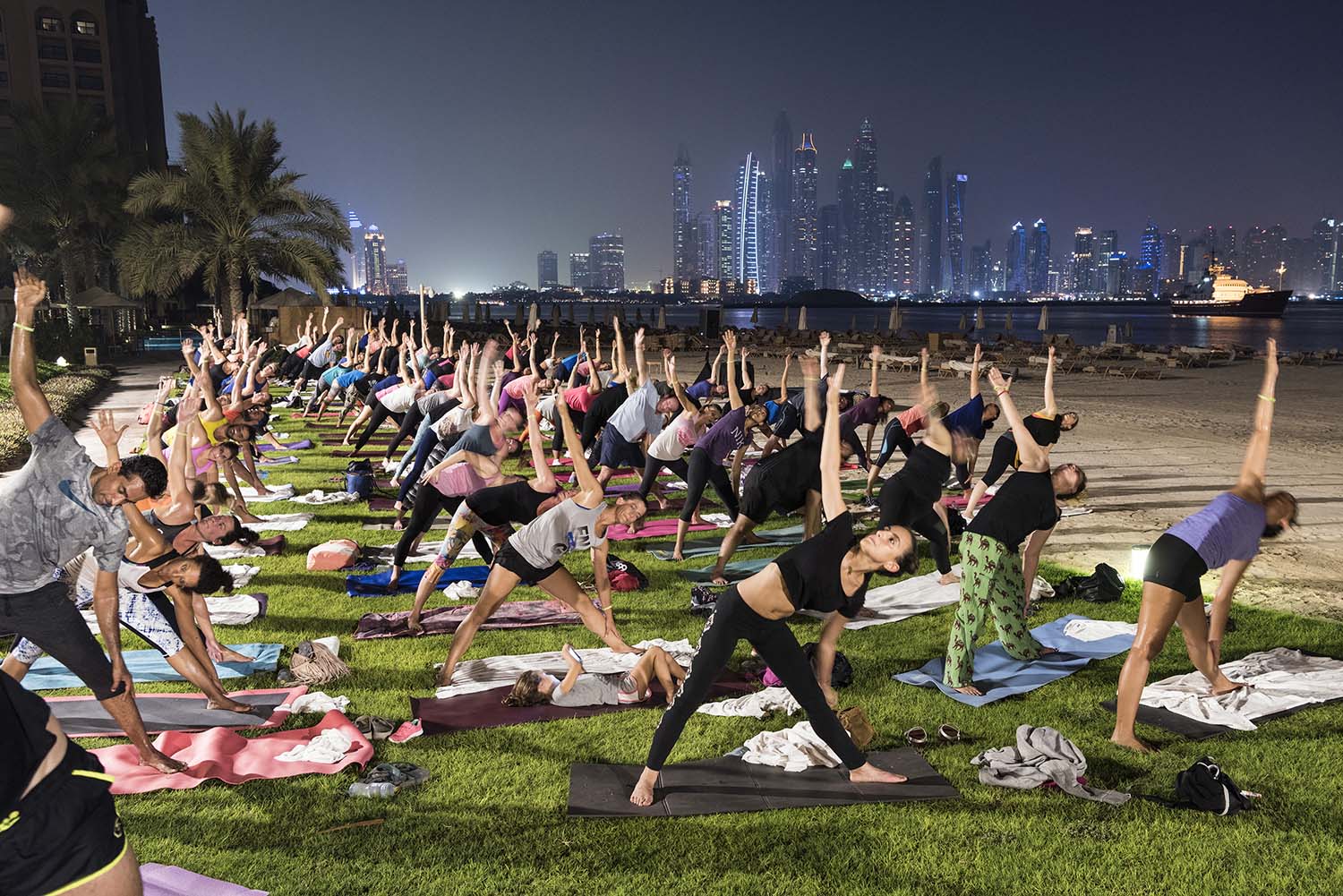
In 2006 you quit doing press assignments to focus on personal works. Can you talk more about this decision
After working as a photojournalist for 8 years I got fed up with doing assignments all the time. It frustrated me not having enough time and energy left to realize my own projects. Instead of being an executor of someone else's ideas, I wanted to be an author myself and cut the crap. I wanted to express my personal thoughts and concerns about certain aspects of our society. And I wanted to do so in my own visual language, that is more metaphorical and layered than a press picture. I wanted to do what I like, to be free to choose subjects that interest me, without having to make compromises. Nobody asked me to go to Dubai. Nobody expects anything from me. I am free to work on my series as long as I want, and to come out with it when I feel I'm ready. There are no deadlines anymore.
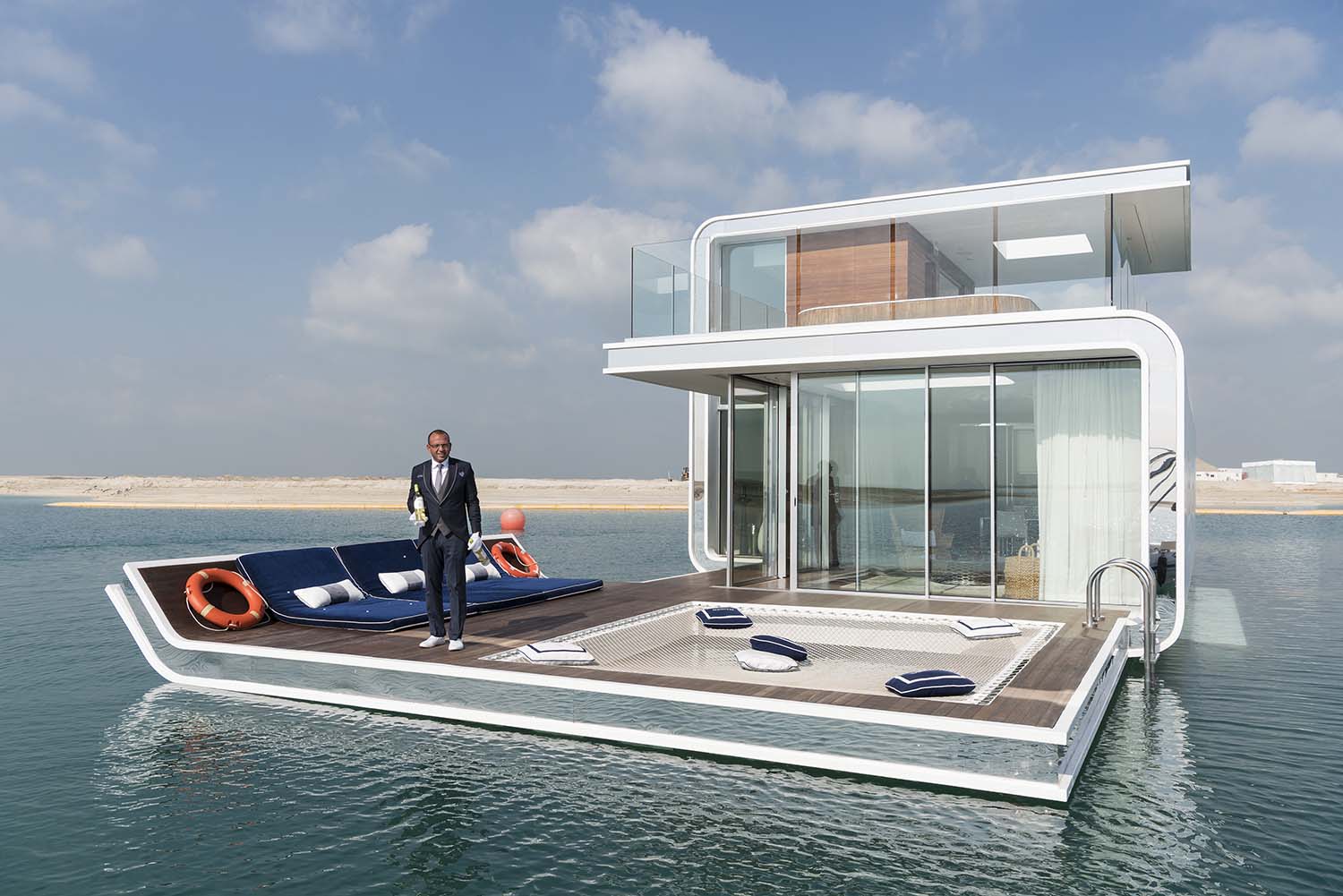
How do you ensure the words and images work together in harmony for each project?
I usually don't use a lot of texts in my books and exhibitions, mostly just place and date. If you put text, people would first read and then look. I think it's important to look first. This forces people to think about what they are looking at, to discover a meaning for themselves. Many of my photographs are open to interpretation. The viewer can fill in part of the story according to his/her own background knowledge and world vision. This might lead to confusion but that's no problem. Confusion is good. It makes people reflect on things. I hope my photographs raise more questions than they answer them.
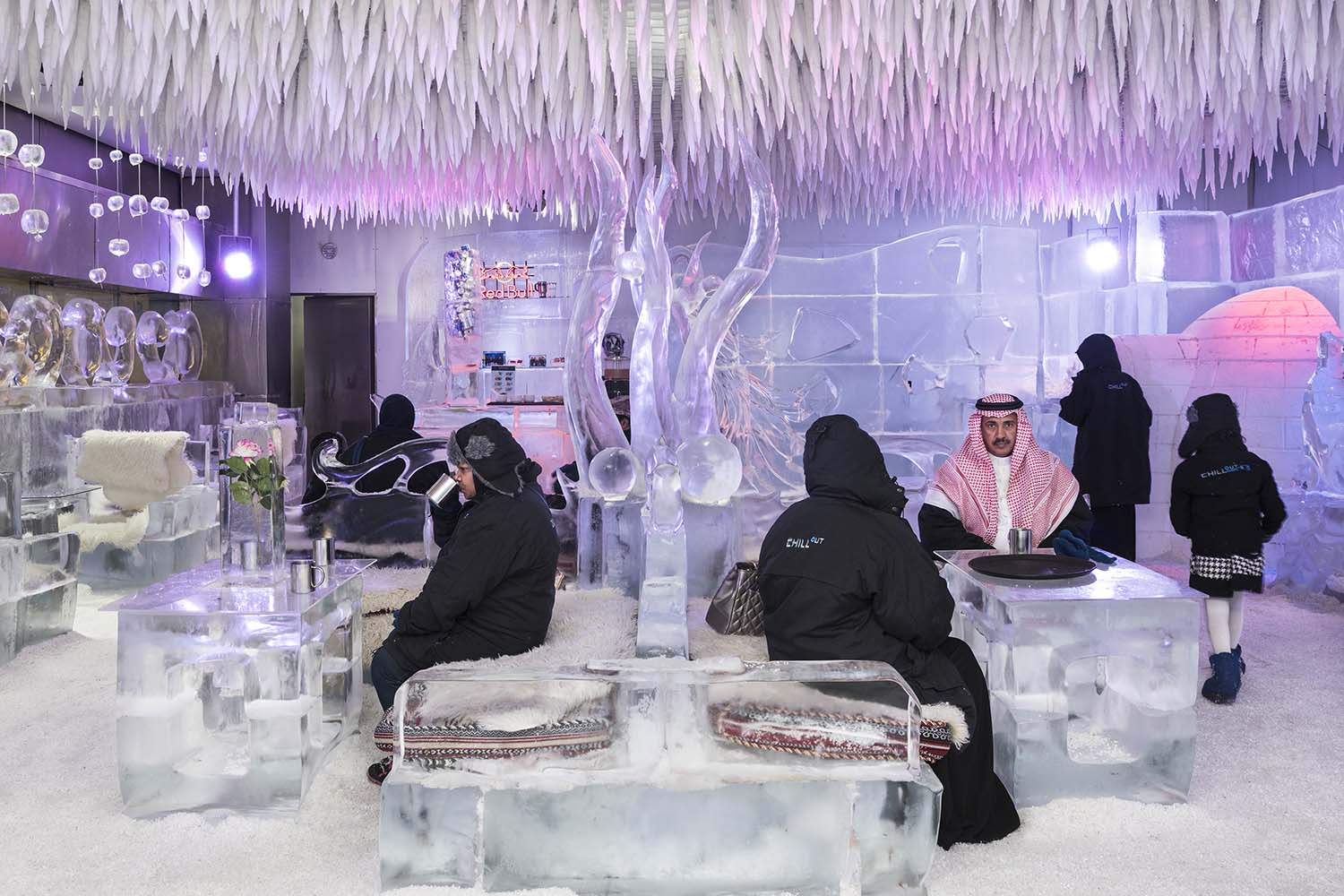
What's next for you?
Finishing the 'Garden of Delight' book, hopefully by December 2018, when the exhibition will be launched. I am also planning to dive into my archive from when I was a student, and compile a visual diary of the last 25 years, with mostly portraits of friends and photographs of crazy parties. I am really looking forward to do this after all the lonely traveling of the last years. And then I will start a new international project in 2019. I don't know yet what that might be and where exactly, but chances are that I will continue working on the topic of urban development and its social and ecological consequences.
nickhannes.be
worldphoto.org/exhibition

